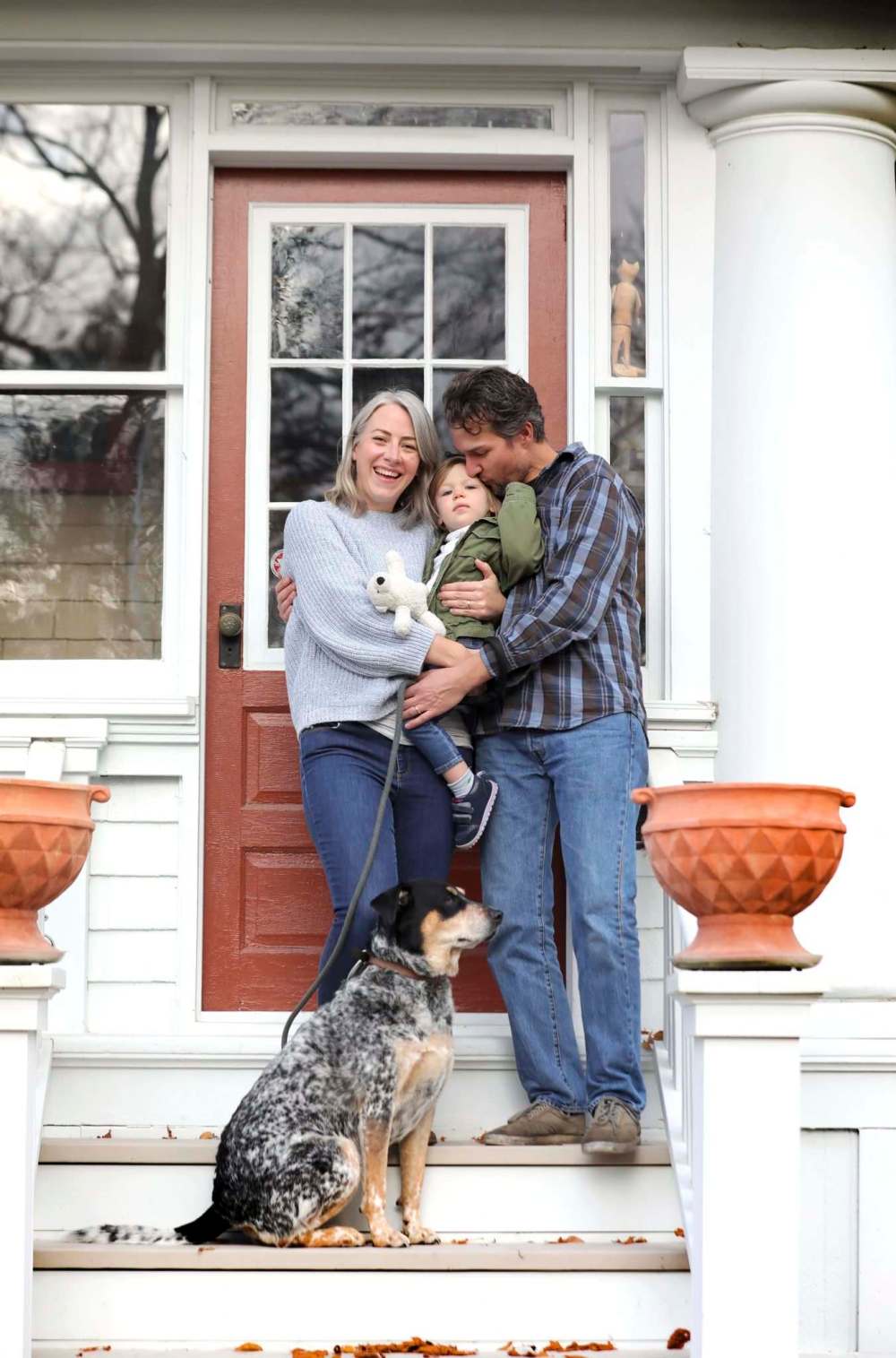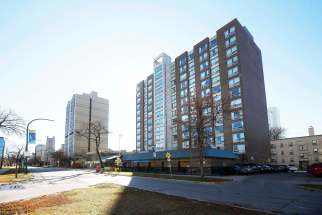Home-court advantage The pandemic has inspired many former Winnipeggers to return to the city, where they have a safety net of support
Read this article for free:
or
Already have an account? Log in here »
To continue reading, please subscribe:
Monthly Digital Subscription
$0 for the first 4 weeks*
- Enjoy unlimited reading on winnipegfreepress.com
- Read the E-Edition, our digital replica newspaper
- Access News Break, our award-winning app
- Play interactive puzzles
*No charge for 4 weeks then price increases to the regular rate of $19.00 plus GST every four weeks. Offer available to new and qualified returning subscribers only. Cancel any time.
Monthly Digital Subscription
$4.75/week*
- Enjoy unlimited reading on winnipegfreepress.com
- Read the E-Edition, our digital replica newspaper
- Access News Break, our award-winning app
- Play interactive puzzles
*Billed as $19 plus GST every four weeks. Cancel any time.
To continue reading, please subscribe:
Add Free Press access to your Brandon Sun subscription for only an additional
$1 for the first 4 weeks*
*Your next subscription payment will increase by $1.00 and you will be charged $16.99 plus GST for four weeks. After four weeks, your payment will increase to $23.99 plus GST every four weeks.
Read unlimited articles for free today:
or
Already have an account? Log in here »
Hey there, time traveller!
This article was published 19/10/2020 (1881 days ago), so information in it may no longer be current.
During the COVID-19 pandemic, many of this city’s former residents have found themselves uttering that oft-quoted line from The Simpsons: “That’s it, back to Winnipeg.”
For Winnipeg expats living in large, pandemic-ravaged centres with no family to form a bubble with, their hometown emerged as an attractive alternative — especially during the summer, when case counts were low. It seemed as if every second Facebook post was from someone announcing their return to the city… often with that Simpsons quote.
This story, on its face, is about people who have chosen to move home to Winnipeg amid a pandemic. But it’s also about the lack of affordable and accessible childcare. It’s about the lack of affordable housing. It’s about isolation. It’s about priorities and how a pandemic can shift and clarify them.
Here are three of those perspectives.
• • •
Vanessa Kuzina is surrounded by boxes during our Zoom video call. In just a couple of days, Kuzina, her husband Chris, and their soon-to-be two-year-old daughter Winona will be making the move back to Winnipeg from Toronto, the city they’ve called home for just over a year.
Kuzina, 39, and her family decided to take the plunge and move to Toronto last year. Leaving Winnipeg was a big, difficult, but ultimately exciting decision; Kuzina is a senior artist management associate for Six Shooter Records, a Toronto-based record label, and working remotely in Winnipeg meant she was not only isolated from her team, but she was missing out on opportunities, such as being able to attend her artists’ shows. “I was missing out on all of that reward and relationship-building with the artists and industry community here,” she says.

“It was so exciting — and then it just dissolved immediately.”
When the pandemic hit in March, all those opportunities were taken off the table as live shows came to an end. “It’s generally hard to make new pals and build community when you’re an import to a new city,” Kuzina says. It’s even harder when your new city is completely shut down by a pandemic. She and her family loved their new neighbourhood, the Junction, and felt very fortunate their apartment had access to an outdoor space. Their new neighbours, too, were the best they’ve ever had.
But “suddenly everything became a lot smaller.” The family members and friends from Winnipeg who were supposed to visit in March and April couldn’t. She was working remotely again — “only now I’m just paying way more money to do it,” she says.
“It was such an isolating time — for everybody — but it was immediate to us that we didn’t have anybody around us we could lean on.”
Faced with another month of rent and childcare — both of which are incredibly expensive in Toronto — Kuzina and her husband decided to bump up their return to Winnipeg. “It feels, in some ways, like a failure, even though it’s out of our control,” she says.
“It’s generally hard to make new pals and build community when you’re an import to a new city.” – Vanessa Kuzina
During their final days in Toronto, Kuzina wanted to surprise her husband with a trip to the CN Tower before they left, to “take one look around at the city we never got to know.” But that, too, was made impossible by tightening restrictions. “It was just like, ‘OK, this is totally representative of our year here,'” she says, tearing up. “It’s like, ‘We’re going to do this thing and it’s going to be awesome — but actually, we can’t do that thing.’ “
Still, she’s eager to return her hometown, and all the comfort and support it will offer.
“I cannot wait. We’re moving in with my mom and her partner when we move back. Just knowing that we have immediate family care and support for our daughter and for us…” she says, exhaling. “I don’t know if I can express the relief.”
Her sigh says it all.
• • •
Kellie Thomson has rented an apartment in downtown Toronto — near the corner of Queen Street West and John Street, “as downtown as you can get” — for more than a decade. The sounds of the street were, for better or worse, the soundtrack of her life.
One morning, during the height of the spring lockdown, she sat down to do her daily meditation and heard an unfamiliar, unsettling sound: birds chirping. In downtown Toronto.

“I was like, ‘Oh my gosh, where am I right now?’ ” she recalls with a laugh. “It just made me realize how much the situation had impacted me and my environment.”
To witness a normally bustling city become a ghost town — and to be in the middle of it — was scary, she says. But Thomson, 40, and her partner, Nita, had been looking to leave Toronto for a while, casually looking at houses in both Winnipeg and Halifax.
“Living in Toronto was a lot of fun, especially coming from a smaller city like Winnipeg,” says Thomson, who works in marketing and communications. (Disclosure: Thomson was in the graduating creative communications class of 2006 at Red River College with this reporter.) “But as I approached my 40s, things started to shift. Things that were important to me before weren’t as important to me.”
Thomson was missing her family, and was finding she was sad after visits to Winnipeg. “As much as I loved (Toronto), it didn’t suit me anymore,” she says. The aforementioned noise pollution was setting her on edge.
“As much as I loved (Toronto), it didn’t suit me anymore.” – Kellie Thomson
The pandemic proved clarifying. “Suddenly, what was taking up space in my life — the pursuit of wealth, an unfulfilling career and pressure to achieve more — disappeared,” she says. “In a way, the pandemic forced me to slow down and allowed me to see what was truly important, and that was being near my family and living a calmer lifestyle.”
She and her partner bought a house in Winnipeg in the summer. “I bought my first house at 40 years old,” Thomson says with a laugh. That’s something that would have been impossible in Toronto, where home ownership is largely out of reach unless you have a spare million or two lying around. “We couldn’t picture ourselves living that lifestyle, where we have to keep making more money, more money, just to survive.”
That’s not to say the move to Winnipeg — and making real estate decisions during a pandemic — wasn’t stressful. But she’s happy with the decision.
“It feels good to be home. I don’t miss Toronto. I couldn’t imagine being in that apartment, given the situation.”
• • •
Jacquelyn Hébert is waiting for someone to pick up a plant when we connect via phone. She’s tying up odds and ends in Toronto before coming back to Winnipeg, where she, her partner Clinton, and five-year-old daughter Anouk spent the summer.
“When the lockdown happened, we were both working full time in our apartment in Toronto,” says Hébert, 41, who is an arts administrator. “Daycare was closed, school was closed. So we came back to Winnipeg at the end of June because we needed a break. And we need help. We just couldn’t do it ourselves anymore.”
Hébert, who grew up in Winnipeg, moved to Montreal in 2010 and has lived in Toronto since 2014. Many of her Winnipeg friends also returned this year, making for, as she puts it, the oddest of reunions and best of summers.
“There were people from New York and Montreal and Toronto, Halifax — basically all East Coast-based people seemed to come back. And it was so easy to social-distance in Manitoba, so we really took advantage of that. We had an awesome summer.”
“There were people from New York and Montreal and Toronto, Halifax– basically all East Coast-based people seemed to come back. And it was so easy to social-distance in Manitoba, so we really took advantage of that. We had an awesome summer.” – Jacquelyn Hébert
In August, Hébert and her partner made the decision to stay in Winnipeg. “The school plan was too ‘Who knows?’ and that seemed even more true in Toronto,” she says. “And we were like, ‘I don’t think the plan is any better than the one in Toronto — but at least we have help in Manitoba.’ We have friends in Toronto, but it’s not the same.”
The constraints and demands of the pandemic have been incredibly hard on working moms in particular, and many women have been forced to leave the workforce. Hébert doesn’t want that for herself, or for her daughter.
“Me stopping working, which is what ends up happening, is not part of the deal,” she says. “If there’s any other indication we need some kind of realization from our government that childcare is a public good, I don’t know (what it is).”
There’s still that familiar sting felt by anyone who has left a hometown, the feeling one has lost the game by returning. “A friend of mine would always joke, ‘Well, if all else fails, we can always go back to Winnipeg,'” Hébert says with a laugh. “This summer, both of us are back — she lives in New York now — we’re like, ‘Oh my God, everything is failing, look where we are.'”
But here, it turns out, is exactly where she needs to be.
“I can’t really see much past this year. I feel like the future is really foggy. Family and friends and community — which I always associate with Winnipeg, I guess because I grew up there — feel comforting right now.”
jen.zoratti@freepress.mb.ca
Twitter: @JenZoratti

Jen Zoratti is a Winnipeg Free Press columnist and author of the newsletter, NEXT, a weekly look towards a post-pandemic future.
Our newsroom depends on a growing audience of readers to power our journalism. If you are not a paid reader, please consider becoming a subscriber.
Our newsroom depends on its audience of readers to power our journalism. Thank you for your support.




